There are about 60 identified figurine fragments in J1. Most of them are body of animal, other are animal heads or fragments of leg.
Few human fragmentary figurines were also recovered in J1. Unfortunatly the human figurines are highly fragmentary and no head is preserved. i26 is well preserved and shows a naked standing woman, with a painted decoration.
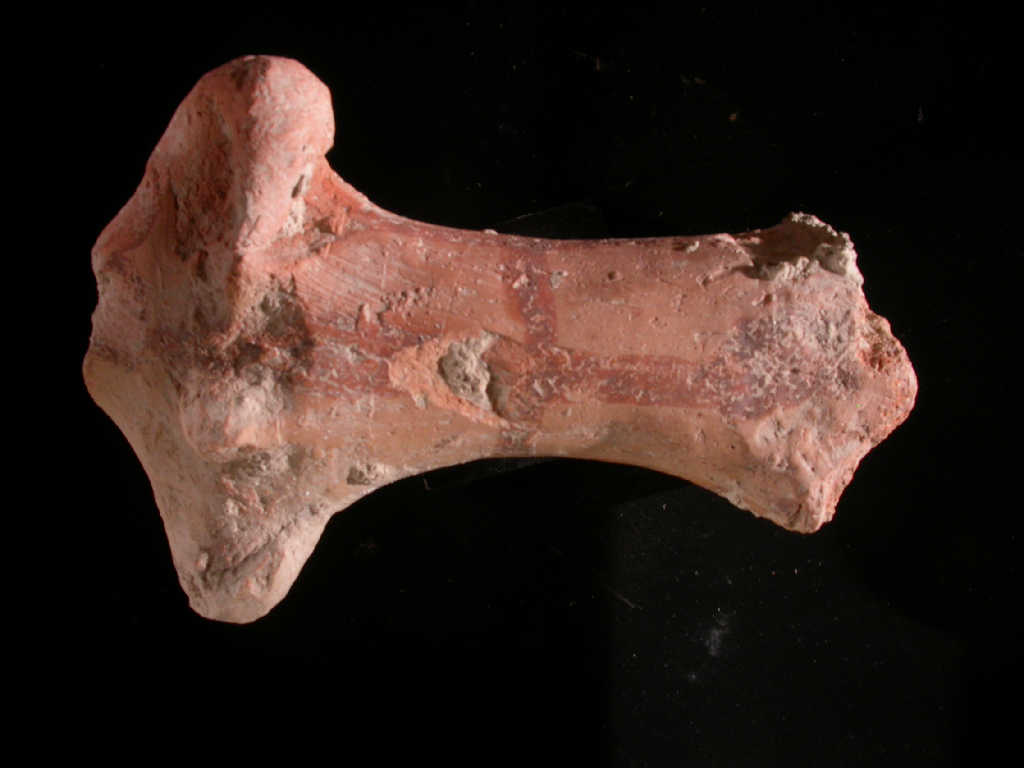 i26 |
 q1150.2 |
Between the large number of animal figurine, the heads of the different animals are very interesting.
The horse is probably the most attested. Some example shows a mane (q343.1, q1114.1), other the bridles (q507.3, q873.2). Other animals attested are rams (q738.1), sheeps (q431.1) and birds (q973.1).
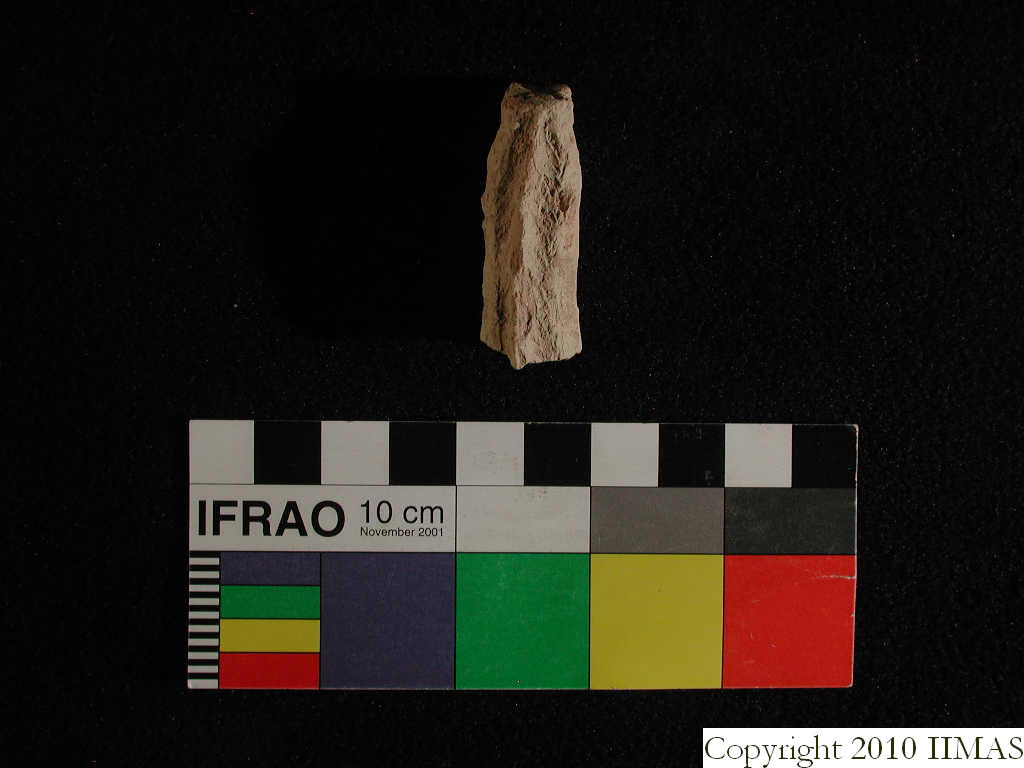 343.1 |
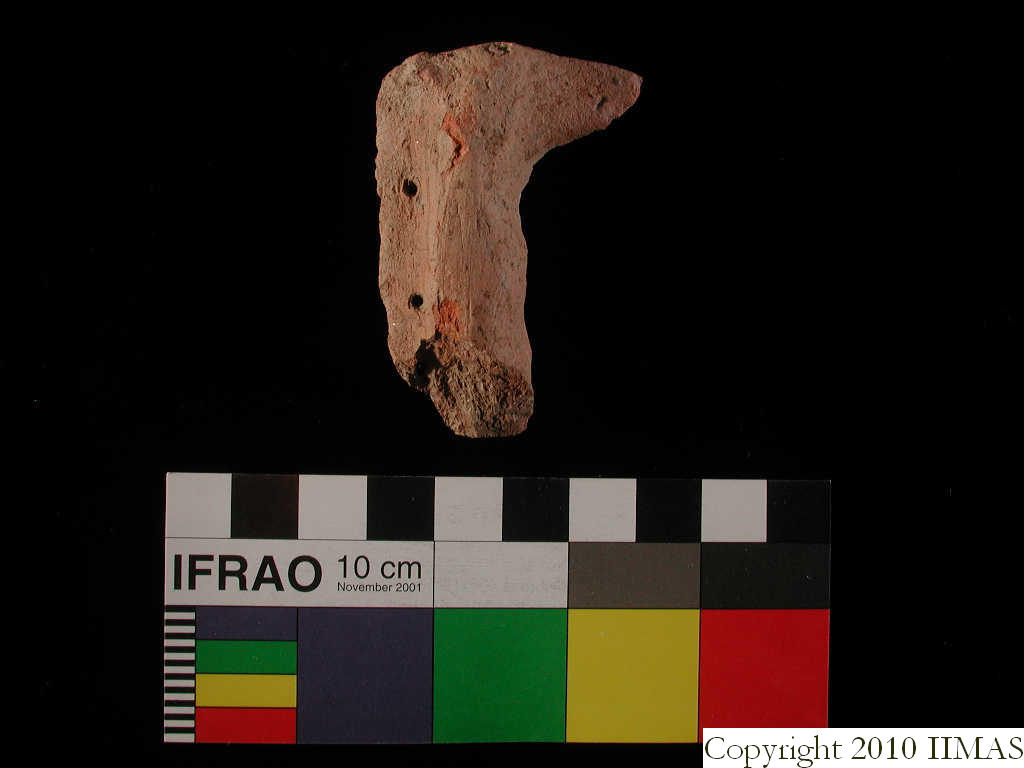 q1114.1 |
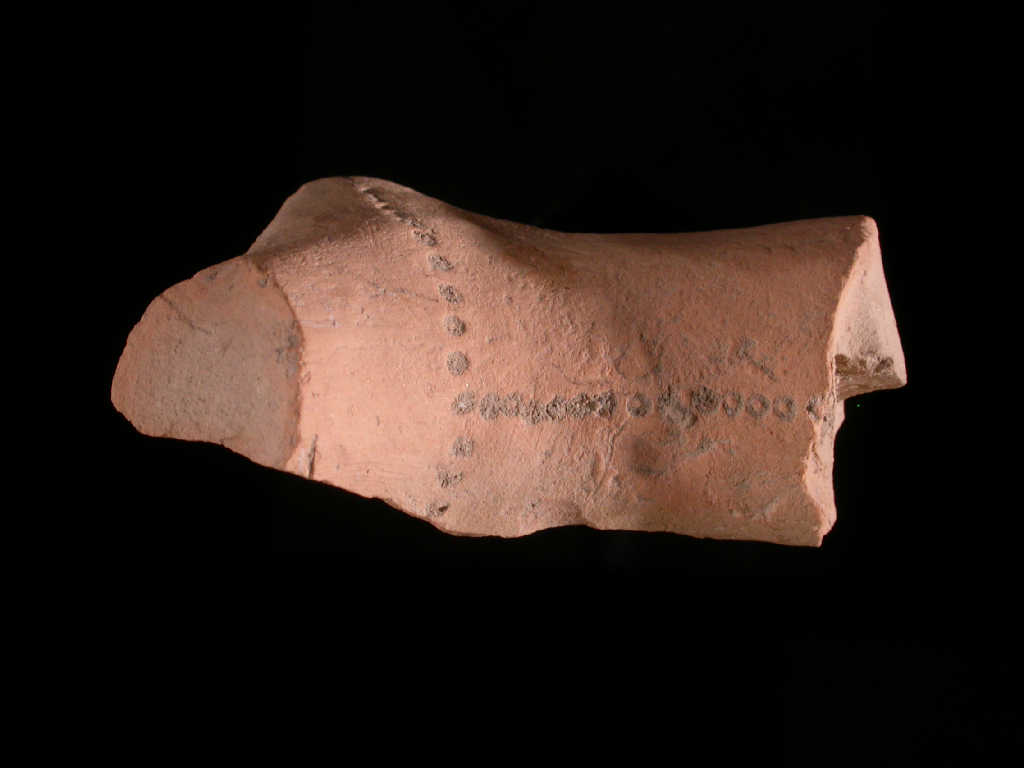 q507.3 |
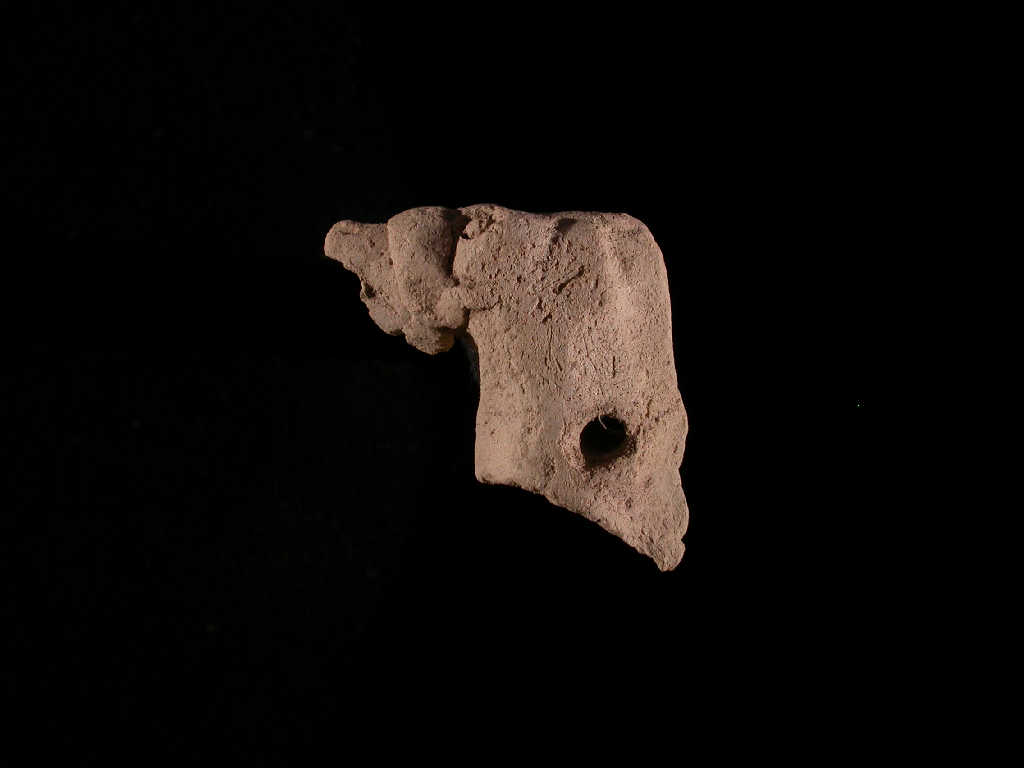 q873.2 |
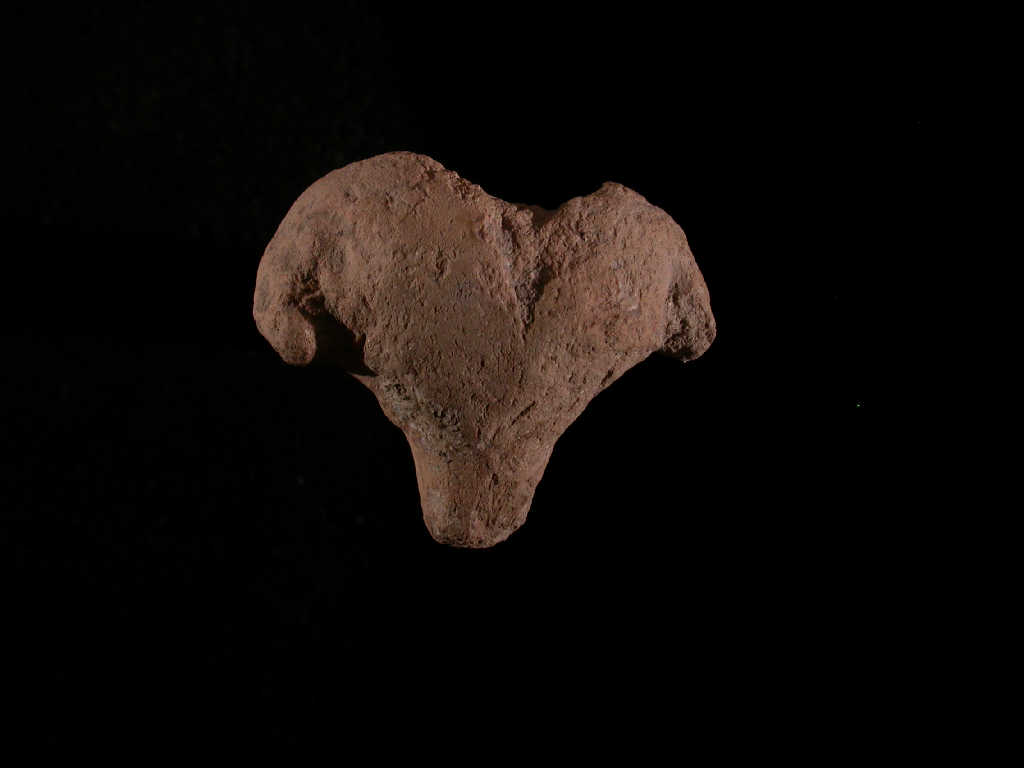 q738.1 |
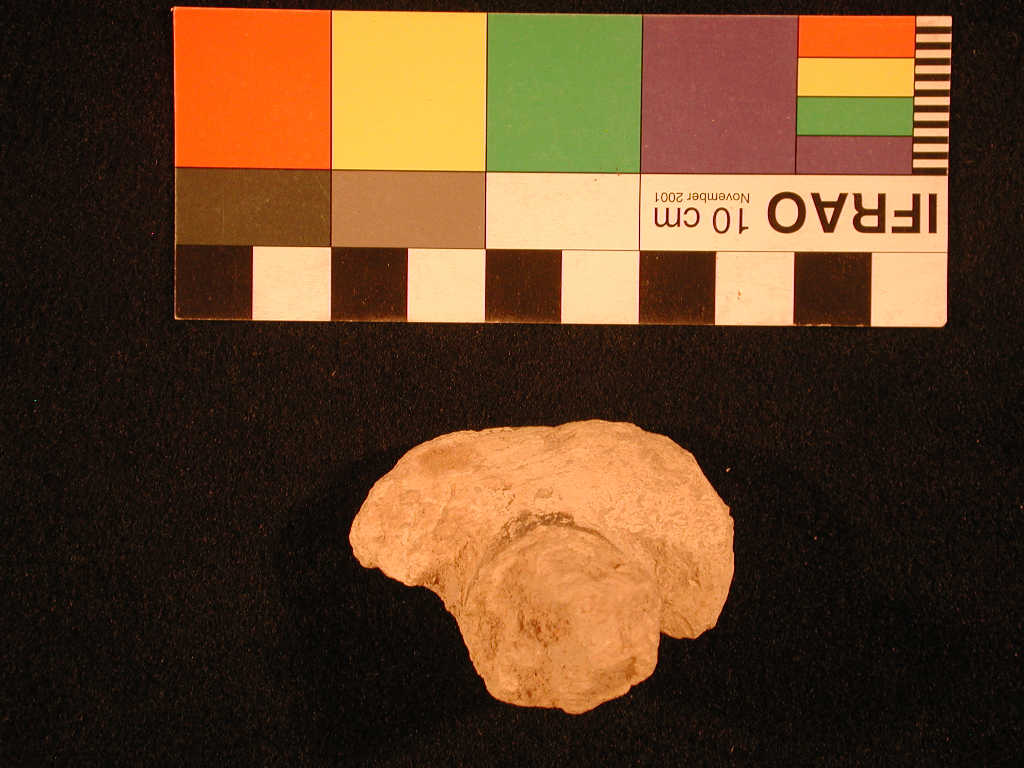 q431.1 |
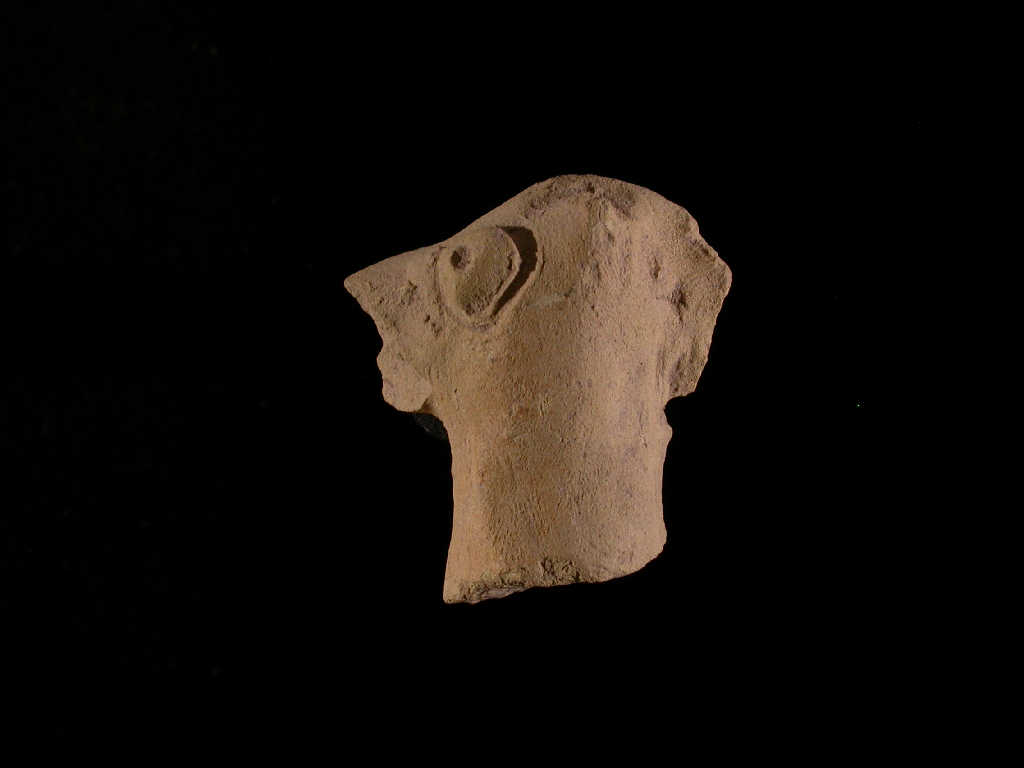 q973.1 |
The body of animal figurines, are usually well preserved, but without legs and head, so the species are unidentifiable, except for few exceptions due to elements as genitals, tails, animal neck. Some examples have incised or painted decoration.
- i76 (probably equus)
- q297.1 (probably equus)
- q304.1
- q305.1 (decoration)
- q383.1
- q422.2 (incised decoration)
- q442.2 (incised decoration)
- q528.2
- q603.1 (probably equus)
- q608.2
- q776.1 (painted decoration)
- q840.2
- q867.2
- q1095.4 (incised decoration)
- q1246.2
Some animal figurines have holes in the lower part of the legs, in order to put wheels and to have movable artifacts. See for example q327.1 and q843.2.
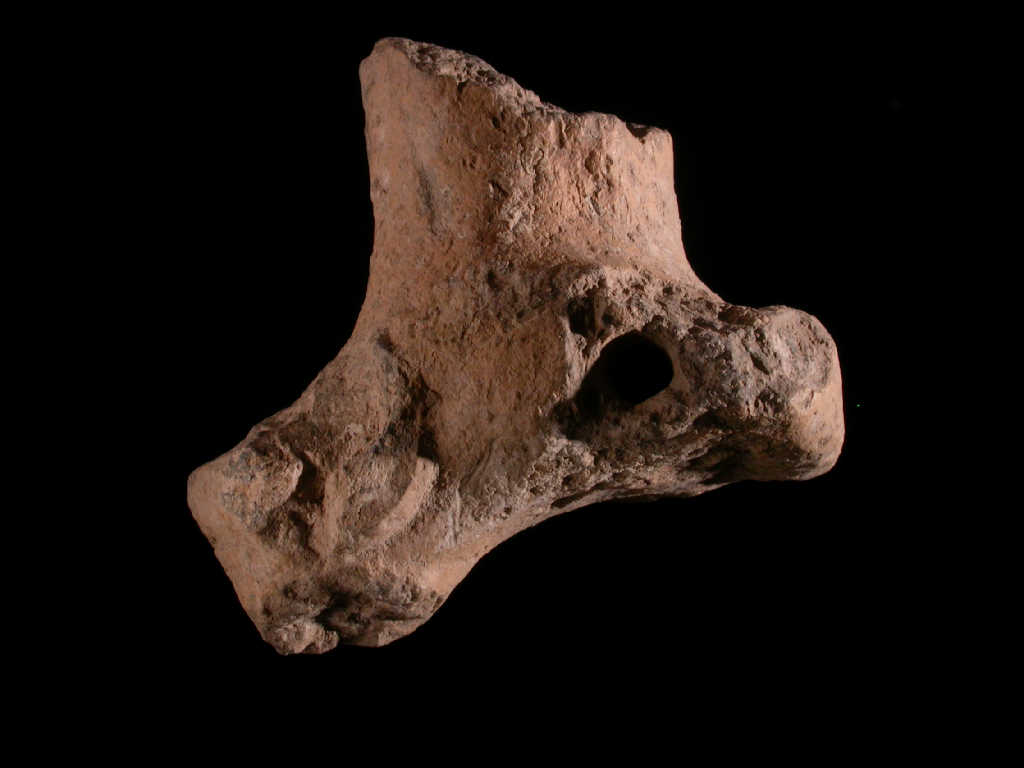 q327.1 |
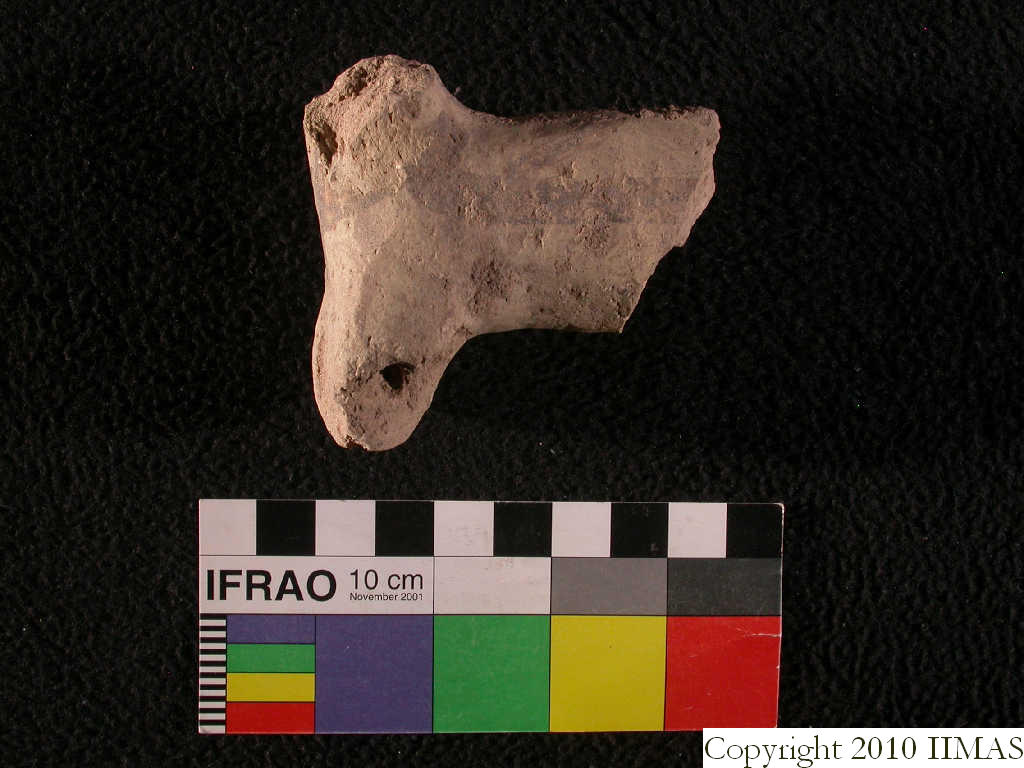 q843.2 |
Back to top: Figurines from Unit J1